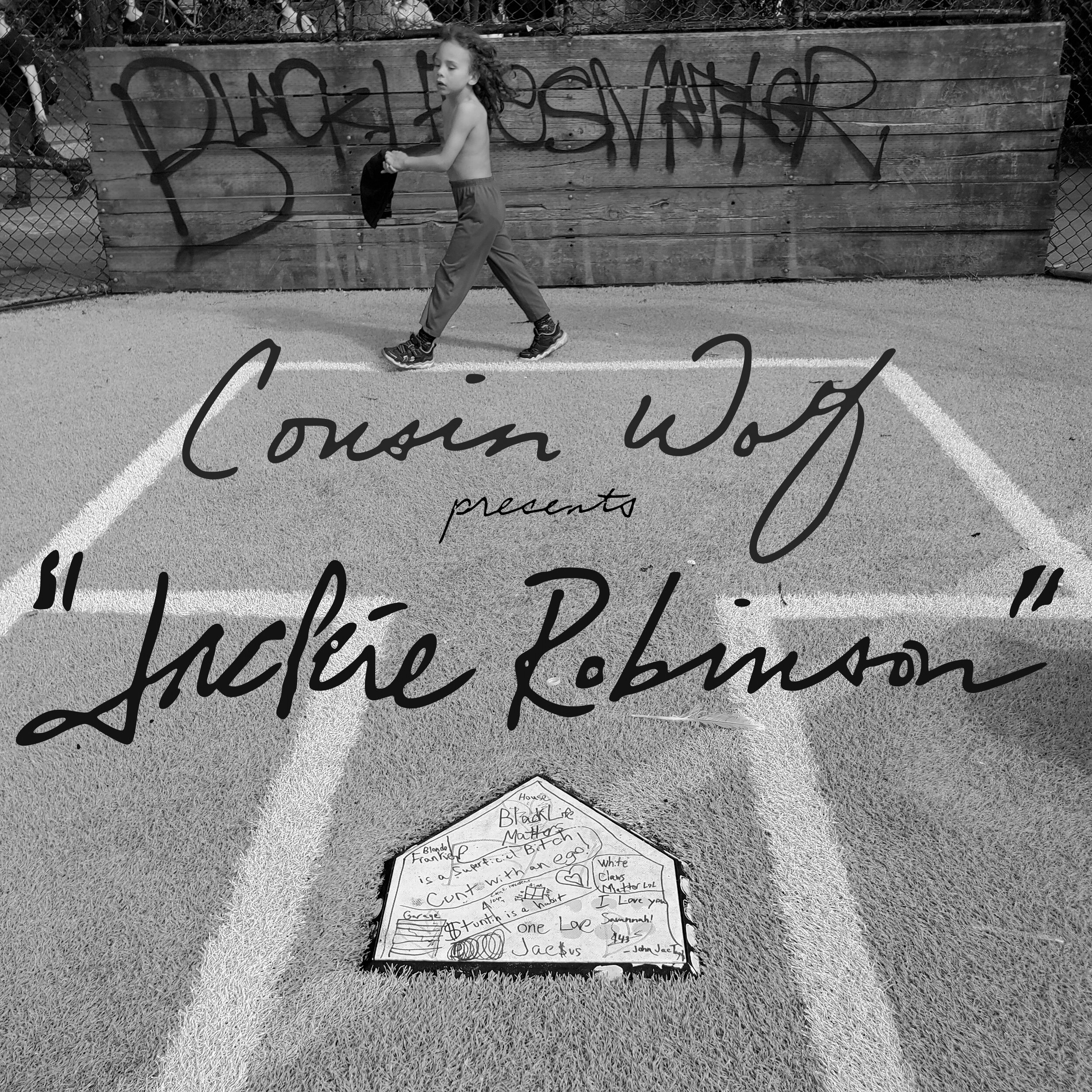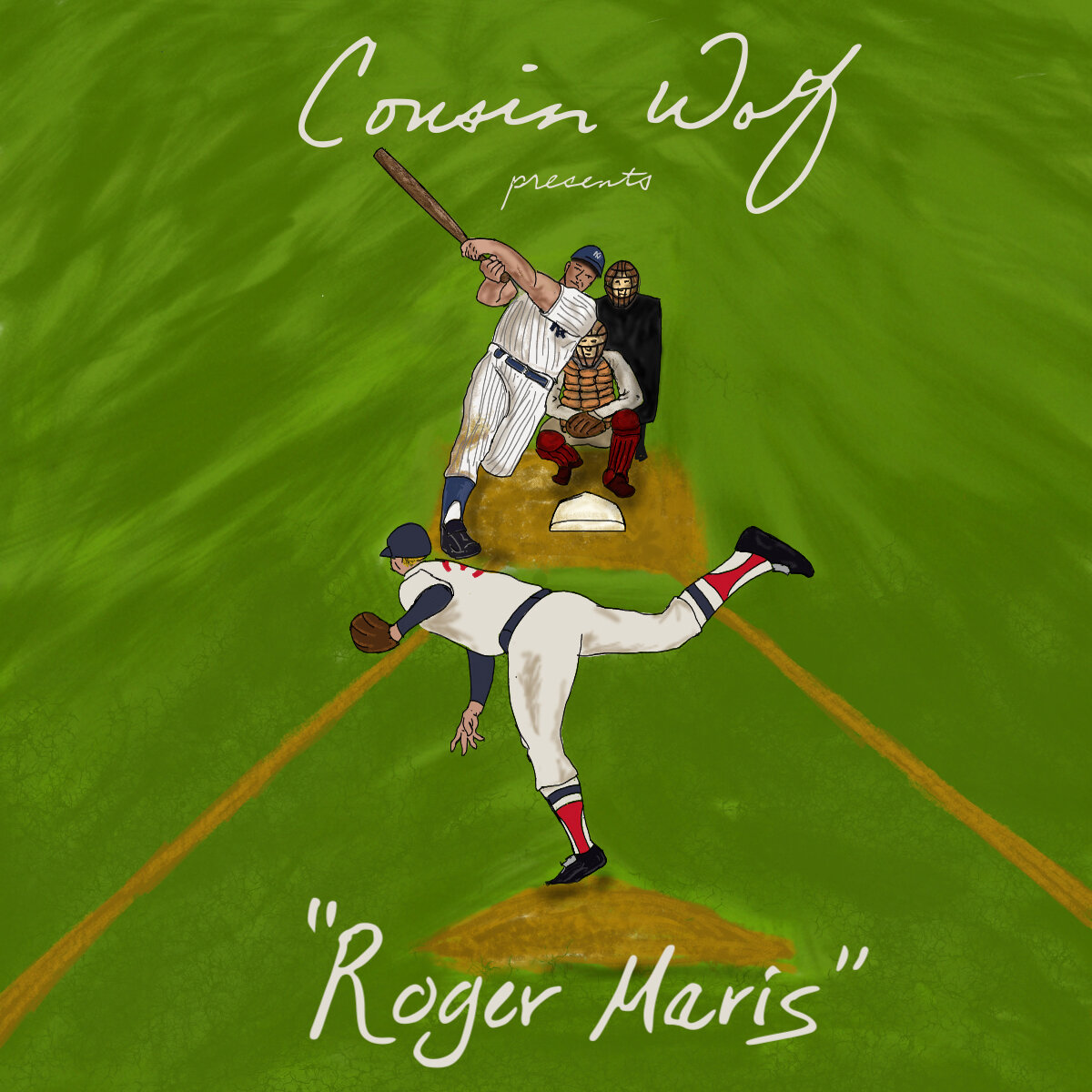“Nine Innings”
Nine songs about life, loss, and big league baseball players
About “Nine Innings”…
By Louie Opatz
I recently received a message from Google saying that I was nearing the storage capacity for my account, which I’d started in 2006. If ever there were a time to tackle the pileup, COVID-19 lockdown was it, so I went back to my earliest emails to start deleting.
But I didn’t delete everything. I kept all the old emails from Matt, my friend who plays music as Cousin Wolf.
In those emails Matt and I made a lot of plans, the earliest and most pressing of which was to start a band.
Here’s part of an email from Matt, sent Tuesday, Aug. 22, 2006 — a few days after we’d settled on the name The Big Ideas: “I made our myspace page. It made me give three genres, so I put us as indie, folk rock and experimental. I suppose that will have to change depending on what we actually sound like when we actually learn to play and write music.”
We had a lot of work to do. But we did it. Apart, then together.
The reason we did, and especially the reason Matt did — and the reason you’re listening to his music now — is that he has a hunger to be heard. He would’ve laughed at me if I’d told him that 14 years ago, but it was true then, and it’s become truer every day since. He’s always been a creator and a storyteller, but he needed to find an avenue to create and tell stories. And he’s found that through his music.
Listening to Matt’s work since its humble beginnings, I’ve come to understand his music as one person trying to make sense of his time on this planet — all while reckoning with the hard-won truth that it makes less sense the longer you’re on it.
Matt’s songs are pleas and protests; they’re about rumination and ruination. I’ve never heard anyone else sing like him, and (as he knows from trying to teach me his songs) I’ve never heard anyone else write songs like him. His music is wholly original, which I think is music’s highest praise and, ideally, its ultimate goal.
That’s especially true of “Nine Innings,” which has been a low hum in the back of Matt’s brain for more than 10 years. He always came back to it, and he always had more to say. At first I was skeptical.
But then I heard “Moses Fleetwood Walker,” the first track he wrote for the album, more than a decade ago. It was about baseball the way that Moby Dick was about a whale, to paraphrase an old saw. It told a complete story — not of Walker’s fielding prowess or baserunning acumen, but his personhood, his experience, his soul. It revealed what this project really was: using other’s stories to tell our own.
Love, death, anger, heartbreak — we all experience these, of course, but to so many of us who love sports, it’s easy to look past this immutable fact and bellyache about a player’s batting average with runners in scoring position or lack of hustle.
We all contain worlds within us, whether we’re Dave Dravecky or Donnie Moore. But the inner lives of ballplayers often remain unexamined — perhaps for good reason. Everyone’s entitled to their privacy. But it also makes these men ciphers, and we the codebreakers trying to discover what makes them tick.
The potent part of “Nine Innings” is how it humanizes these superhumans and makes, across nine songs that will quickly and stubbornly take up residence in your head, a powerful statement: we are all one, yet we will never truly know each other.
So how shall we live our lives?
Louie Opatz
2.11.21
“Nine Innings”
1 Moses Fleetwood Walker
2 Kevin Elster
3 Roger Maris
4 Lou Gehrig
5 Dave Dravecky
6 Carl Mays
7 Jackie Robinson
8 Donnie Moore
9 Jurickson Profar







